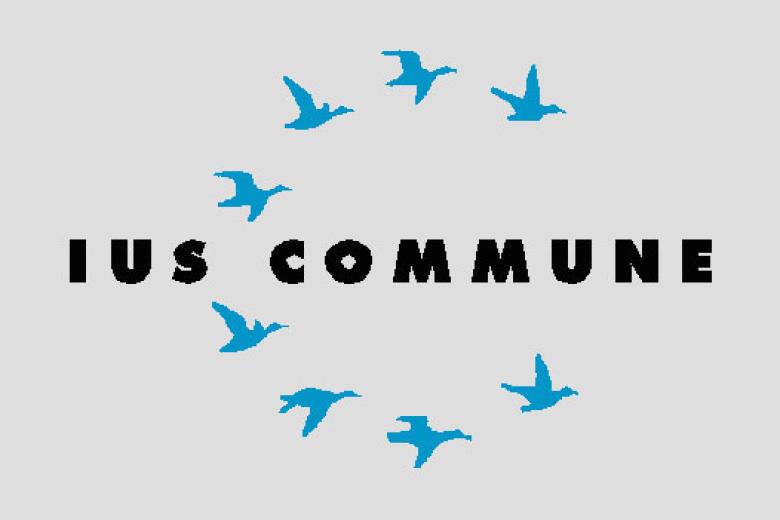One money security: for an Ivorian legal overhaul to withstand global illicit flows
My thesis proposes to analyse in depth the Ivorian framework for combating money laundering, suggesting solutions inspired by international best practices. It calls for action from all stakeholders: public decision-makers, financial institutions, media, civil society, and international organizations, in order to foster collective mobilization around the proposed solutions, for an effective and efficient fight against this scourge with multiple repercussions.
In a context marked by globalisation, the fight against money laundering raises major challenges for Côte d'Ivoire. Faced with the limitations of the current legal framework, an overhaul is necessary, based on a comparative approach likely to lead to strategic proposals adapted to contemporary challenges.
The issues of money laundering in Ivorian law in a globalised context
The challenges of the fight against money laundering in Côte d'Ivoire, in a globalized context, can be understood from two complementary angles: first, the analysis of the link between globalization and the proliferation of illicit financial flows (A); second, the examination of the strategic position of Côte d'Ivoire in this fight (B).
a. Globalization and risk of illicit flows
With the winds of globalization, which favour greater freedom and flexibility in trade between states, the risk of illicit capital flows is becoming a concern, especially with the prevalence of digital technology in trade. Aware of this threat, states have deemed it necessary to adopt legal regulations to make suspicious financial transactions more difficult. African countries are not on the sidelines of this dynamic.
African states are developing strategies to combat these illicit capital flows. We are witnessing a globalization of the fight against economic and financial crime.
This global dynamic requires national legal systems, including that of Côte d'Ivoire, to adapt and strengthen themselves.
b. Position of Côte d’Ivoire in the struggle
Côte d'Ivoire, seen as the economic powerhouse of West Africa, has adopted a legal framework to combat money laundering. Money laundering is the process during which funds obtained through the commission of a criminal offense are reinjected into the legal economy in order to mask their illegal origin.
The discussion about money laundering in Ivorian law is of theoretical interest. First, it directly addresses a subject that has long remained taboo in many African states, particularly in Côte d'Ivoire. Second, it provides international organizations, academics, teachers, legal practitioners, civil society, and all concerned individuals with relevant and coherent tools to actively participate in debates on legal, political, and institutional strategies to combat it at the international level. It aims to strengthen the fight, both efficient and effective, against this form of financial crime, the repercussions of which have a lasting impact on economies.
Then, there is also a practical interest. It provides national and international organizations engaged in the fight against money laundering with specific tools, based on an exegetical reading of the legal framework for combating it, while integrating contextual realities, both anthropogenic, such as political instability, and non-anthropogenic, namely health or natural crises, which reinforce the sense of urgency and the need for an appropriate strategic response. Côte d'Ivoire should therefore be vigilant about the origin of international or national funds to help populations who are potential victims of these situations.
Moreover, it raises awareness among all international and national stakeholders about the magnitude of the threat posed by money laundering, which requires strengthening international cooperation.
Finally, it ensures that Ivorian economic channels are not exploited for the purpose of financing terrorism in the Sahel, through the use of dirty money.
For an Ivorian legal overhaul: comparative reading and strategic proposals
The Ivorian legal overhaul based on comparative law is essential (A). It allows for the identification of appropriate strategic proposals (B).
a. Exegetical reading and recourse to comparative law
Protecting Côte d'Ivoire's economic channels from money laundering, and indirectly from terrorist financing, requires the adoption of rigorous measures at the exegetical level. In fact, it is important to refer to Belgian, French, and Canadian law.
Indeed, the Belgian and French have a broad approach to the criminal behaviour that gives rise to the offense of money laundering. This refers to any behaviour classified as an offense in the broad sense of the term, that is, whether it is a crime, a misdemeanour, or a contravention. Whereas in Ivorian law, as in most African countries, contraventions are excluded.
Furthermore, in Canadian law, particular emphasis is placed on the range of persons subject to preventive measures against money laundering. As a solution, Canadian law has extended the reporting obligation to households, as these individuals are genuine sources of information and can contribute to the uncovering of judicial truth regarding the dismantling of money laundering networks. In addition to this solution, we recommend that the reporting obligation be extended to legal entities governed by public law.
It is also better to refer to Swiss law, which integrates cutting-edge software into suspicious transaction detection strategies to prevent illicit funds from entering legal economic channels. Today, in the era of artificial intelligence and digital technology, it is clear that white-collar criminals will develop strategies to conceal illicit funds; states, including Côte d'Ivoire, should therefore implement monitoring systems using high-performance software.
Furthermore, solutions can come from the law Senegalese law, which has allowed a special bonus for whistleblowers, that is, people whose reporting of suspicious transactions would allow white-collar criminals to be arrested. This is in reality a motivation bonus.
b. Practical proposals for Ivorian law
At a practical level, strategies to combat money laundering in Côte d'Ivoire can be implemented. These include the territorialization of anti-money laundering authorities to be closer to localities where the risk of money laundering is high, which will facilitate the speedy gathering of evidence, with a view to opening a preliminary investigation for money laundering.
Moreover, it’s suitable to establish of a special compensation fund for victims of money laundering to ensure that victims are supported.
And finally, it is desirable to take into account the criminal records of certain clients at high risk of money laundering, which will facilitate the creation of evidence of money laundering.
Our analysis is essentially based on comparative reasoning. This method is a question of showing, on the one hand, that the problem of money laundering invites all States to a collective awareness, to engage in a spirit of cooperation and international solidarity, of exchanging good practices on tools for detecting, analysing and suppressing operations of illegal origin, so that the fight against this phenomenon is not a vain struggle, but rather a reality. This fight can only succeed through a collective and coordinated mobilization of all stakeholders.
The synergy of actions has therefore become an essential requirement, faced with the globalization of illegal financial flows and the interconnection of financial and economic systems, hence the concept of "one money security", a sort of syllogism which allows us to say that humanity must be united by a single currency, when it comes to questions of economic and financial crime: it is the currency of transparency, fluidity, ethics in financial transactions.
Furthermore, with the phenomenon of terrorism, an enemy of all humanity and which, for more than a decade, has been plaguing the Sahel countries, notably Mali, Burkina Faso, the solutions proposed as part of our research work on the fight against the phenomenon of money laundering in Côte d'Ivoire, can also constitute a real remedy to the problem of the fight against terrorism in the world and in Africa in particular. Because money laundering and the financing of terrorism are so linked that one could easily say that these two phenomena constitute different facets of the same coin
-
Known Unknowns: A Macro-Meso-Micro Socioeconomic Approach to Uncover the Dark Number of Victims of Human Trafficking for the Purpose of Labour Exploitation
These last few weeks, Minister Paul of Social Affairs and Employment of the outgoing cabinet has been in the news for unilaterally deciding no longer to gradually phase out the Dutch regulation that allows temporary employment agencies to deduct a quarter of the minimum wage from migrant workers...

-
The Decennial Jubilee of Ius Commune in the Making
On 27 November 2025, the tenth edition of the workshop series on Ius Commune in the Making took place within the 29th Ius Commune Conference organised by the University of Amsterdam. This blog entry reproduces a public address by one of the members of the organising committee of that workshop series...

-
Overriding Mandatory Rules in International Arbitration: Balancing Business Freedom and State Interests
Imagine two companies from different countries enter a business deal. They pick a neutral country’s law to govern their contract and agree to arbitrate any disputes, thinking they can sidestep each other’s national courts. But what if one country’s law absolutely prohibits something in the deal –...

